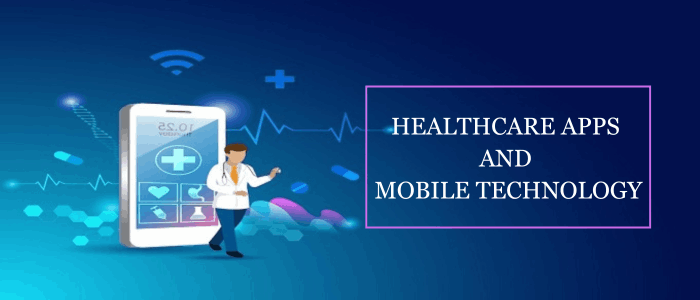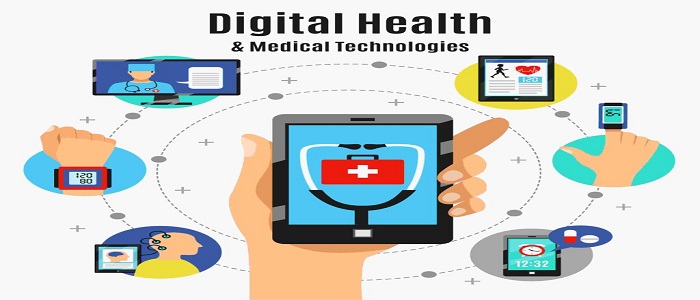
Healthcare Apps and Mobile Technology: Empowering Patients and Promoting Wellness
This is an era driven by technological advancements; healthcare apps and mobile technology have emerged as powerful tools in the realm of healthcare, transforming the way patients access medical information, monitor their health, and promote overall wellness. These digital developments are revolutionizing the healthcare industry, empowering people to take control of their well-being like never before. With just a couple of taps on a smartphone, patients can get a wealth of medical resources, engage in further monitoring of chronic conditions, and even communicate directly with their healthcare suppliers.
The convenience, personalization, and accessibility offered by healthcare apps are reshaping the healthcare landscape, fostering proactive approaches to healthcare, and promoting the well-being of individuals worldwide.
In this blog, we are going dive into the rise of healthcare apps, explore the benefits they offer to patients and healthcare providers, and reveal how they are changing the healthcare experience by empowering people to become active members in their own health journey.
The Rise of Healthcare Apps
Healthcare apps are software applications outlined to help people in managing their health and well-being. These apps include a wide range of functionalities, including tracking fitness goals, checking crucial signs, managing medications, accessing medical records, and connecting with healthcare experts. There are various types of healthcare apps available, each catering to specific needs and requirements. For example, there are apps focused on fitness and nutrition, mental health and mindfulness, chronic disease management, and even telehealth services.
Statistics and trends in the adoption of healthcare apps indicate a significant increase in their usage among patients. According to recent studies, the worldwide healthcare app market is expected to reach an esteem of $236 billion by 2026. This rapid development can be credited to the expanding number of smartphone users, advancements in mobile technology, and the growing demand for convenient and accessible healthcare services.
Benefits of Healthcare Apps for Patients and Healthcare Providers
One of the key aspects of healthcare apps is their ability to empower patients. With these apps, individuals can actively participate in their own healthcare journey. They have the means to track their fitness goals, monitor their nutrition intake, and maintain a healthy lifestyle. Fitness and nutrition apps provide personalized workout routines, meal plans, and progress tracking, making it easier for individuals to adopt healthier habits and achieve their wellness objectives.
Additionally, mental health and mindfulness apps have gained significant popularity. These apps offer various strategies such as meditation, breathing exercises, and rest tracking to help people manage stress, improve mental well-being, and accomplish superior sleep quality. By promoting self-care and giving tools for relaxation and stress reduction, these apps engage clients to take control of their mental well-being and promote general health.
Moreover, healthcare apps enable individuals to access a wealth of medical information and resources at their fingertips. Symptom checkers, drug information databases, and medical literature repositories empower patients to educate themselves about their health conditions and treatment options. They can gather insights, ask informed questions during healthcare visits, and actively engage in shared decision-making with their healthcare providers. This access to reliable and accurate information gives patients a sense of empowerment and confidence in managing their health.
Another empowering angle of healthcare apps is the capacity to engage in remote monitoring and virtual discussions. Patients with chronic conditions can utilize wearable gadgets to track their crucial signs, such as heart rate, blood pressure, and glucose levels. The information collected can be consistently integrated with healthcare apps, allowing people to monitor their health patterns over time and share the data with their healthcare providers. This remote monitoring enables early detection of potential issues, proactive interventions, and personalized treatment adjustments, leading to better health outcomes.
Promoting Wellness with Mobile Technology
In addition to empowering patients, healthcare apps also play a vital role in promoting wellness. As mentioned earlier, fitness and nutrition apps, assist users in maintaining an active lifestyle and making healthier dietary choices. These apps provide personalized recommendations based on individual preferences and goals, helping users stay motivated and accountable. These apps make the wellness journey more engaging and enjoyable by incorporating gamification elements, such as challenges and rewards.

Furthermore, mental health and mindfulness apps contribute to overall wellness by addressing the importance of mental well-being. With features like mood tracking, guided meditation sessions, and stress management techniques, these apps help users alleviate anxiety, improve focus, and cultivate a positive mindset. By integrating these practices into their daily routines, individuals can enhance their emotional well-being and achieve a state of balance and harmony.
Challenges and Considerations
While healthcare apps offer immense potential, some challenges and considerations need to be addressed. Privacy and security concerns arise when personal health information is stored and transmitted through these apps. It is crucial for app developers to prioritize data protection and ensure compliance with privacy regulations to maintain user trust.
Furthermore, the effectiveness and accuracy of healthcare apps can vary. App developers should conduct rigorous testing and seek validation from healthcare professionals to ensure that the apps deliver accurate and reliable information. Additionally, addressing the issue of accessibility is vital to ensure that these digital solutions are available to individuals of diverse backgrounds and abilities.
Future Directions and Trends
Looking ahead, the future of healthcare apps and mobile technology appears promising. As technology continues to advance, we can expect the integration of artificial intelligence and machine learning into these apps, enabling more personalized and precise healthcare recommendations. Furthermore, the adoption of wearable devices and sensors will provide users with real-time health data, fostering a more comprehensive understanding of their well-being.
Moreover, the expansion of telehealth services and the incorporation of virtual reality and augmented reality technologies hold immense potential to transform the way patients receive healthcare. These innovations will provide immersive and interactive experiences, allowing patients to consult with healthcare professionals, undergo therapy sessions, and even receive surgical training remotely.
Healthcare apps and mobile technology have revolutionized the healthcare landscape, empowering patients and promoting wellness. With easy access to medical information, remote monitoring capabilities, and personalized fitness and mental health tools, individuals now have the means to actively engage in their own healthcare.
While challenges exist, the future holds promising developments, such as AI integration and virtual reality, that will further enhance these digital solutions. As we move forward, it is crucial to continue harnessing the power of healthcare apps and mobile technology to create a healthier and more empowered society.
